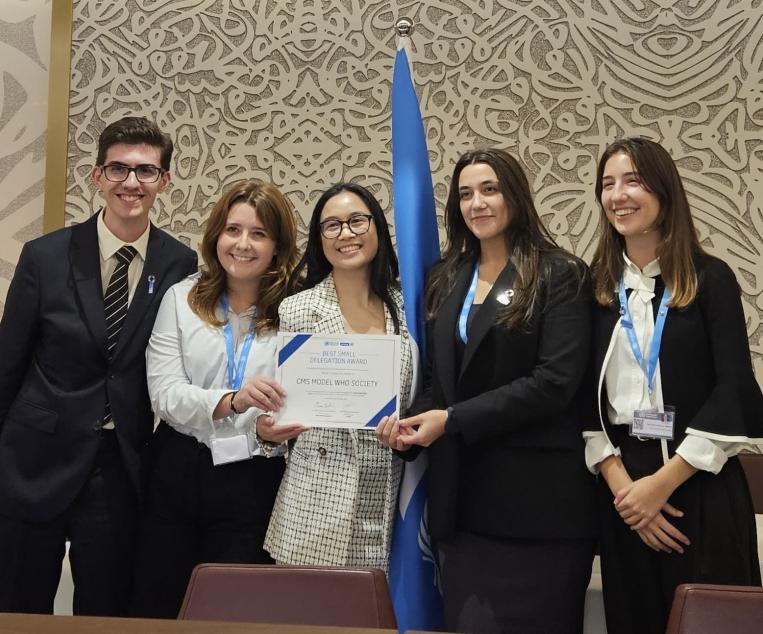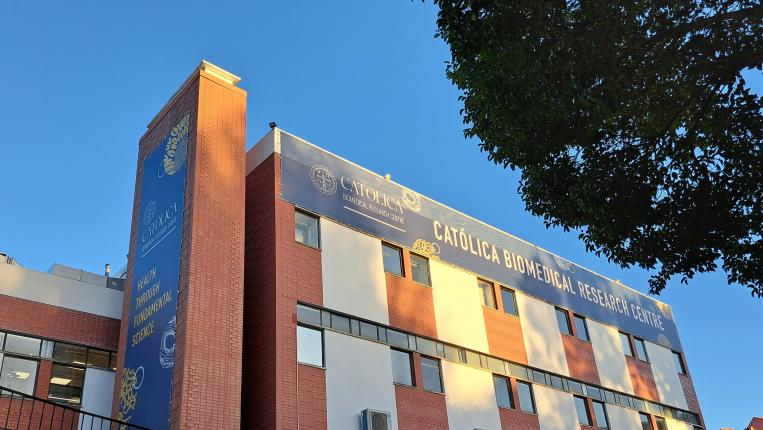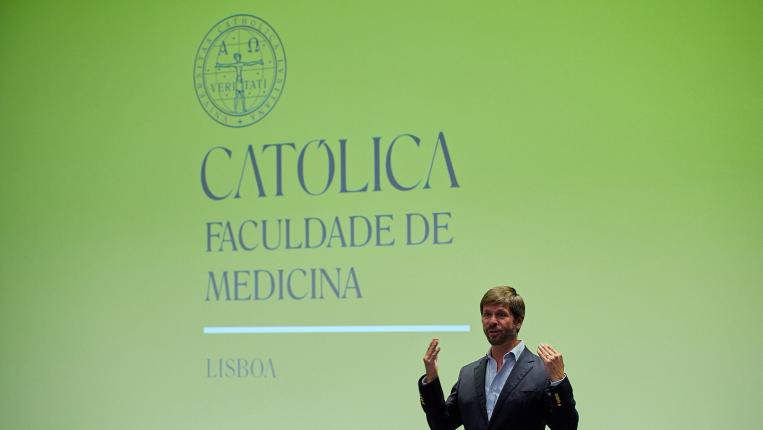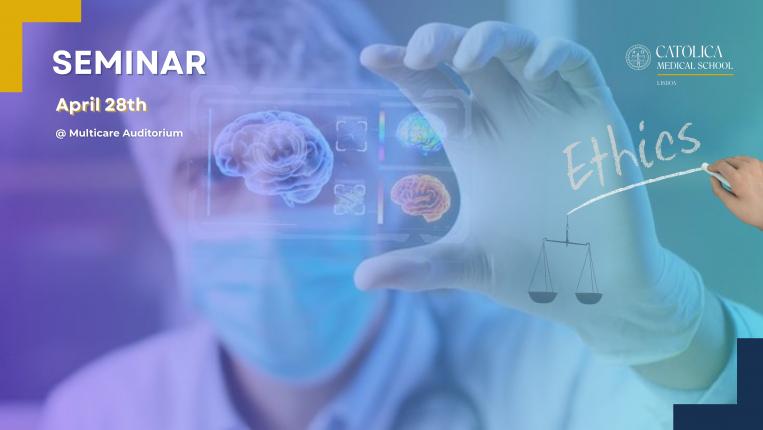
From October 29th to November 1st, the Católica Medical School Model WHO Society participated in the first in-person Global Model WHO 2024 conference, held at the World Health Organization (WHO) headquarters in Geneva. Organized by the World Federation of United Nations Associations (WFUNA) in partnership with WHO, the conference welcomed over 350 high school and university students from around the world to engage in an immersive simulation of the World Health Assembly (WHA).
The CMS Model WHO Society - which is the Católica Medical School’s Model United Nations and Model WHO student association - was composed by a four-student delegation consisting of Beatriz Matias, Francisco Afonso, Joana Costa, and Matilde Santos. These students joined peers from diverse countries in debating some of the most pressing issues in global health. Each participant represented an assigned country, tasked with advocating national positions in a WHA setting while learning firsthand about the diplomatic processes underpinning international health policy. Furthermore, during this conference the important Youth Declaration of the Pandemic Agreement was adopted, urging the member states to finish the Pandemic Agreement that has been ongoing for the past two years.
Participants in the university-level committees tackled three critical topics: Antimicrobial Resistance: Accelerating National and Global Responses, Poliomyelitis Eradication, and the Ending TB Strategy. Through rounds of negotiation, debate, and amendments, delegates aimed to reach consensus and collaboratively draft resolutions addressing their assigned issues.
The conference was a landmark experience for the CMS delegation, providing insights into the operational dynamics of WHO, hands-on practice in diplomacy, and opportunities to forge connections and friendships with international peers. The outcome of the event highlighted the strength of the Católica Medical School’s delegation. Beatriz Matias was awarded the Diplomacy Award for her exceptional representation of Sudan in the Antimicrobial Resistance committee, and Francisco Afonso won the same honor for his performance as the delegate for Cameroon in the Poliomyelitis Eradication committee.
In a crowning achievement, the CMS Model WHO Society received the Best Small Delegation Award, a testament to the skill, commitment, and collaborative spirit displayed by its members. This international recognition not only reflects positively on the Católica Medical School but also positions its Model WHO Society as a rising force in global health simulations.



